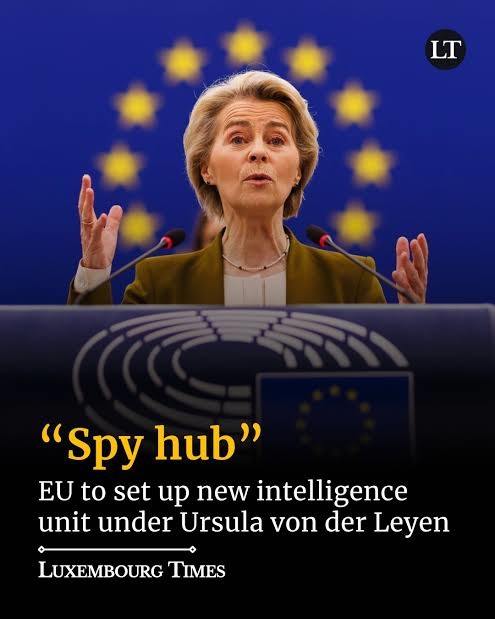
The European Commission has begun setting up a new intelligence body under president Ursula von der Leyen (ex- gynecologist), in an attempt to improve the use of information gathered by national spy agencies.
The unit, to be formed inside the commission’s secretariat-general, plans to hire officials from across the EU’s intelligence community and collate intelligence for joint purposes, said four people briefed on the plans, ‘Financial Times’ reveals.
One of the people said: “EU member state spy services know a lot. The commission knows a lot. We need a better way to put all that together and be effective and useful to partners. In intelligence, you need to give something to get something.”
The move is opposed by senior officials at the EU’s diplomatic service, which oversees the bloc’s Intelligence and Situation Centre (Intcen), who fear it will duplicate the unit’s role and threaten its future, the people added. The plan has not been formally communicated to all the EU’s 27 member states, but the body aims to bring officials on secondments from national intelligence agencies.
A commission spokesperson told the FT that it was “examining how to strengthen its security and intelligence capabilities. As part of this approach, the creation of a dedicated cell within the [secretariat-general] is being considered.”
“The concept is being developed and discussions are ongoing. No specific timeline has been set,” they said, adding that it “would build on existing expertise within the commission and... closely co-operate with respective services of EEAS [European External Action Service].”
Intelligence sharing has long been a delicate subject for EU member nations. Major states such as France, with extensive spying capabilities, have been wary of sharing sensitive information with partners. The emergence of pro-Russian governments in countries such as Hungary has further complicated co-operation.
EU capitals are expected to resist the commission’s moves to create new intelligence powers for Brussels, two of the people said. But they added there had long been concerns over Intcen’s effectiveness.
“The commission is not going to start sending agents into the field,” said a second person.
Trump’s suggestions that the US could reduce its support to Europe — and his temporary suspension of intelligence support to Ukraine this spring — have highlighted the continent’s reliance on Washington for certain capabilities.
The new unit follows von der Leyen’s decision to establish a dedicated “security college” for her commissioners to be briefed on security and intelligence issues.
read more in our Telegram-channel https://t.me/The_International_Affairs

 11:12 18.11.2025 •
11:12 18.11.2025 •






















